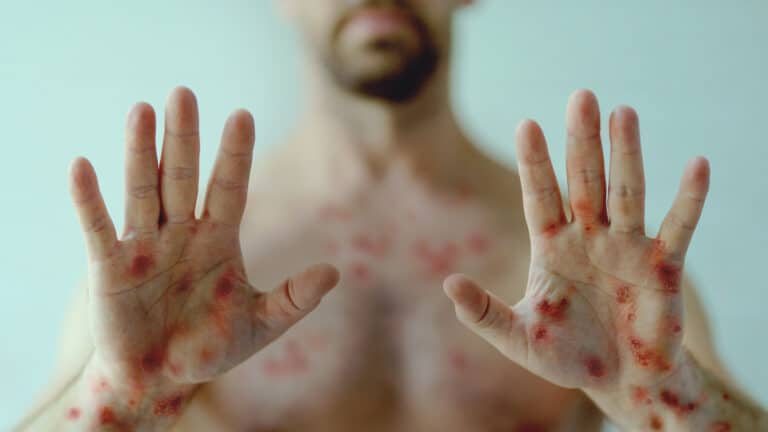People in their late 20s or early 30s are usually diagnosed with brief psychotic disorder, also known as brief reactive psychosis. Teen psychosis symptoms can be detected by identifying adolescents at risk.
If you or your loved one needs help identifying brief psychotic disorder, contact us today. Our mental health treatment center in California will personalize a treatment plan to give you the best opportunity for a happy and healthier life.
What Is Brief Psychotic Disorder?
An individual with a brief psychotic disorder experiences psychotic episodes that last more than one day but less than one month.
When an individual experiences unusual firm beliefs, hallucinations, or catatonia, such as disorganized speech or behavior, their functioning returns to normal.
It is common for the brief psychotic disorder to affect all sorts of people, as it can be triggered either by extreme stress or by a later event, such as pregnancy or the birth of a child.
People suffering from this disorder might need attention during these episodes to remain safe. A person’s level of psychosis will determine the amount of help that is required.
This mental health issue does not always mean that they have a chronic mental health condition. On the contrary, people who suffer from brief psychotic disorder typically recovery from it entirely and live a normal life once again.
However, such an episode is sometimes the first sign of a condition such as schizoaffective disorder, schizophrenia, or a mood disorder.
Signs and Symptoms
The symptoms of brief psychotic disorder are very similar to those of schizoaffective disorder or schizophrenia. Unlike those conditions, there is a point where the signs of brief psychotic disorder have to resolve.
Symptoms include:
- Delusions
- Hallucinations
- Disorganized speech
- Catatonic behavior
- Absurdly disorganized
Brief psychotic disorder will look different from person to person. While one individual will hear voices in their head, other individuals will become catatonic, which involves a lack of movement and communication.
Often, symptoms tend to resolve before a medical professional can make a proper diagnosis.
Causes and Diagnosis
Several studies have linked the causes of brief psychotic disorder to genetic factors. Other causes include extreme stress such as a traumatic event or the loss of a loved one.
A diagnosis for brief psychotic disorder is based on interview questions that a physician, psychiatrist, or mental health clinician will ask. The individual’s family members, friends, or those affected by the person will also be interviewed to get a more precise diagnosis.
Traumatic events, such as a tragic accident or the death of a loved one, are common causes of brief psychotic disorders.
There are no known genetic, biological, or environmental factors that contribute to it.
The symptoms of brief psychotic disorder can also be triggered by pregnancy. Women are more likely to suffer from the disorder than men.
Psychiatric disorders such as bipolar disorder, schizophrenia, major depression, and schizoaffective disorder can cause postpartum psychosis.
Trauma from childbirth or hormonal changes may result in postpartum psychosis in some people who do not have a mental illness.
Treatment
While treatment truly depends on the cause, it will typically include a combination of medication and psychotherapy. This combination will help a person understand and recover from this psychotic disorder to the best of their ability.
Psychotherapy includes various therapeutic approaches. Typical therapies for psychotic disorders include:
- Individual therapy – This type of therapy involves a trained professional like a therapist or psychologist, working with a single person on their issues and struggles of their mental health condition.
- Cognitive-behavioral therapy (CBT) – Using cognitive-behavioral therapy, individuals are taught coping skills, problem-solving strategies, and recognizing distorted or unhelpful thinking. Instead of addressing the causes of the problem, this form of therapy focuses on the present moment. Ultimately it’s meant to assist people in becoming their therapists by empowering them.
Treating brief psychotic with medication will help the individual with hallucinations and delusions they might be facing. Other medications such as antidepressants may also be utilized in their treatment plan.
Treatment will also include ways and tips to cope with the stress and adverse effects of brief psychotic disorder.
When it comes to brief psychotic disorder, education is one of the most critical factors in managing the condition. Those around you can greatly benefit from learning more about the illness as it is not that prevalent.
Having those around you learn about symptoms, triggers, and treatment options can help immensely.
Learning about these things will help family members better support the individual when they are struggling with symptoms.
Resources
If you want to learn more about brief psychotic disorder and how to manage, help or prevent it, below are some resources that could help.
- Schizophrenia and Related Disorders Alliance of America
- Crisis Text Line
- American Psychiatric Association
- American Addiction Centers
Get Treatment with SoCal Sunrise Mental Health
Experiencing or witnessing brief psychotic disorders can be scary. Friends and family must learn more about the condition to understand better and help those going closest to them that are suffering from it.
Southern California Sunrise Mental Health is here to help. With years of experience and caring staff, we’ll be right by your side. We offer several treatments and treat anything from depression to schizophrenia.
Call us today to learn more.






